International Women's Day around Europe and Central Asia
Date:
Women’s rights and gender equality are taking centre stage in 2020. Twenty-five years since the adoption of the Beijing Declaration and Platform for Action—a progressive roadmap for gender equality—it’s time to take stock of progress and bridge the gaps that remain through bold, decisive actions. This year’s theme for International Women’s Day (8 March) is, "I am Generation Equality: Realizing Women’s Rights”. In the framework of the campaign, a rich diversity of initiatives celebrated women and girls, their limitless struggle for their rights and their boundless strength across Europe and Central Asia. These initiatives brought together people of diverse backgrounds to drive actions that will create the gender-equal world we all deserve.
11 March
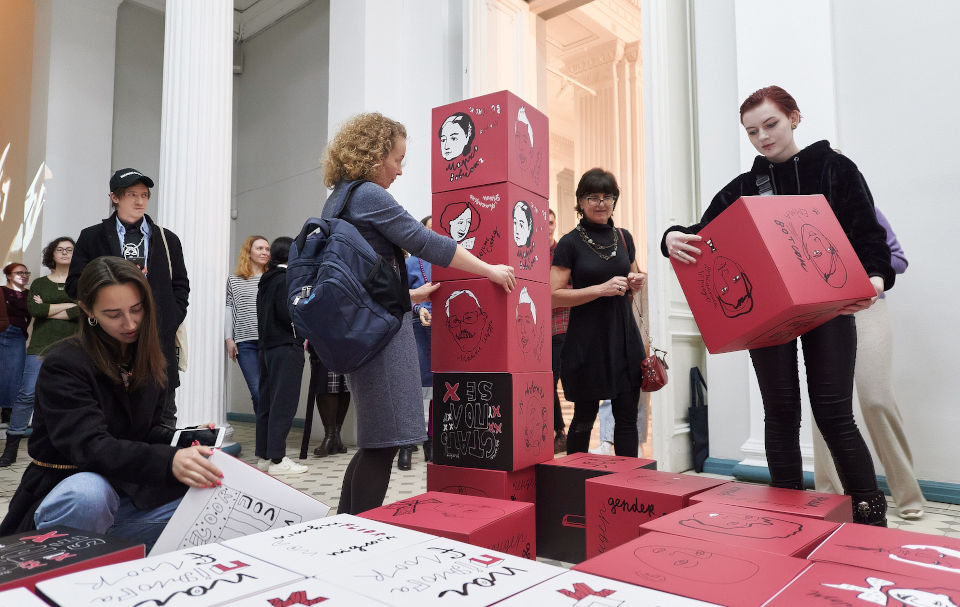
On 11 March, famous Ukrainian artist, and Women in Arts Award nominee Alevtyna Kakhidze has presented her art installation with 92 cubes, “Construct Gender” for HeForShe Ukraine. This art installation demonstrates that gender can be constructed, displaying the complexity of the term and posing thought provoking questions. Visitors can interact with the artwork by building sculptures, searching for hidden phrases and images of people from different genders among 18 portraits of prominent and unknown people, taking photos of the process and sharing them on social media. The installation was presented at the HeForShe Arts Week 2020 in National Art Museum of Ukraine, a long-term partner of the movement.
8 March
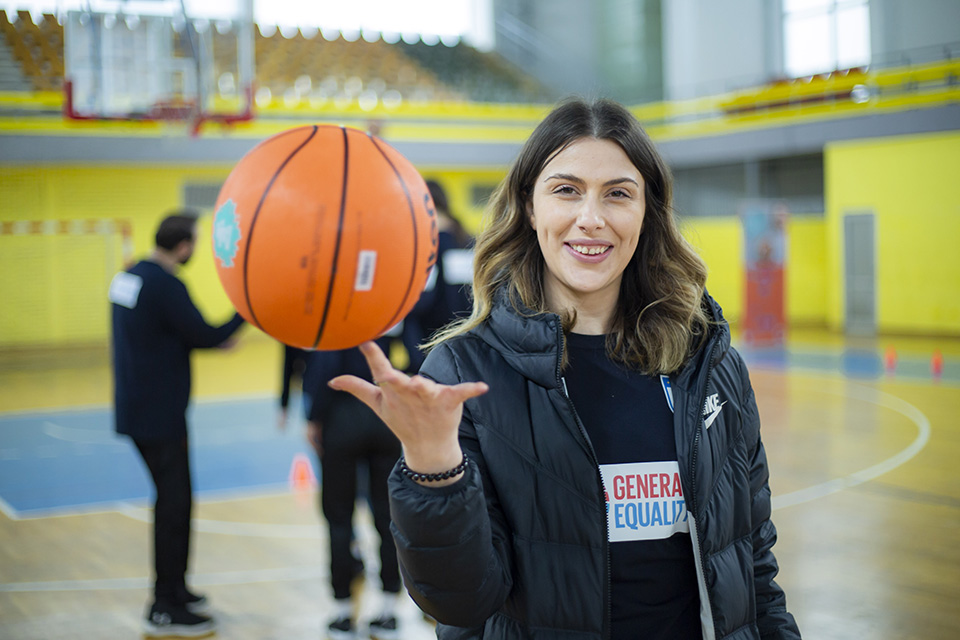
UN Women marked International Women’s Day in the city of Gjakova, in western Kosovo[1], with young women and girls in basketball. In collaboration with Kosovo Basketball Federation (FBK), FIBA Europe, Gjakova Municipality and KBF Vellaznimi, UN Women introduced the Generation Equality campaign and called upon the young women and girls in sports to join the campaign and promote gender equality. "Women and girls in sports continue to face discrimination, violence and prejudice. Their successes are underestimated, while the media continue to pay less attention to women's and girls' sports. We are committed to empower women and girls in sports. Through sport we give girls the opportunity to achieve their dreams, and take a step towards gender equality," said Vlora Tuzi Nushi, UN Women Head of Office.
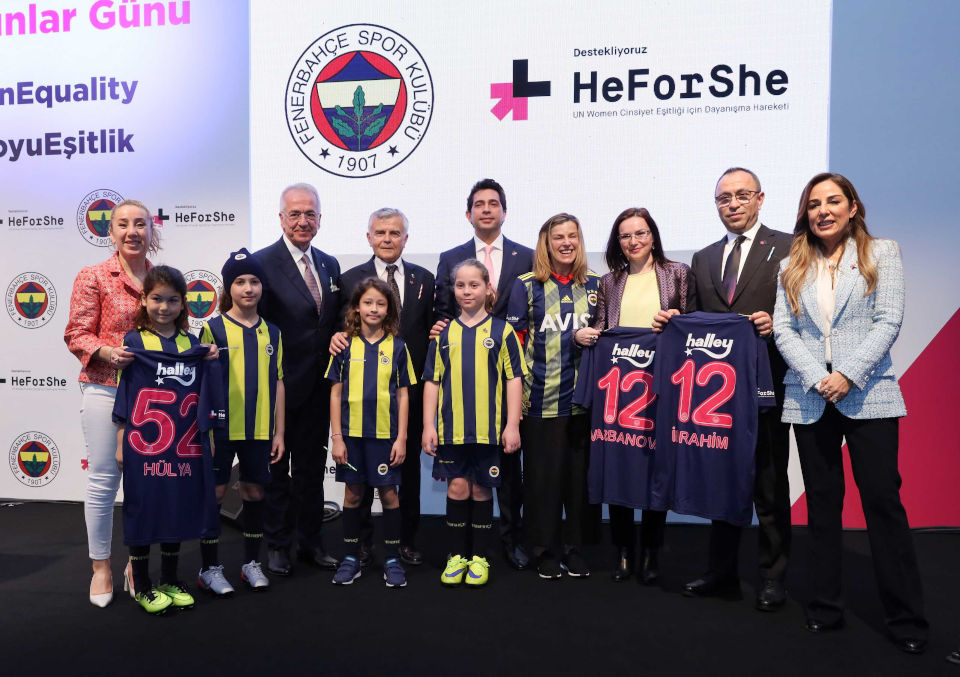
On International #WomensDay, we came together with one of Turkey’s biggest sports clubs, @Fenerbahce_EN and private company @tupras for #GenerationEquality.
We work for the empowerment of women and girls in sports, as we do in all aspects of life. #HeForShe pic.twitter.com/id5DRp0Wpu— UN Women Europe & CIS (@unwomeneca) March 10, 2020
To mark International Women’s Day, Fenerbahce, one of the largest and most popular sports clubs in Turkey and a champion for the HeForShe campaign, and UN Women spotlighted the importance of women’s equal participation and empowerment in sports.
UN Women, Fenerbahçe Sports Club and Tüpraş, one of the companies of Koç Holding, an Impact Champion of HeForShe, brought together prominent female athletes of Turkey from different generations who participated in the Olympic Games in the past, the ones who will participate in the Tokyo 2020 Olympics and the youth from Fenerbahçe Sports Schools for an interactive dialogue at the event: “Generation Equality: Empowering Women and Girls in Sports”.
Since November 2018, Fenerbahçe Sports Club has become the first sports club in Turkey to take important steps to become an ‘Inclusive Sports Club’ by participating in the global HeForShe movement for gender equality with the support of Tüpraş. Since the completion of the gender analysis of the club, Fenerbahçe has been providing trainings to their employees and athletes about gender equality and striving to increase the number of women athletes, coaches in the club. The club also advocate for zero-tolerance approach to all forms of discrimination against women and girls. Read more.
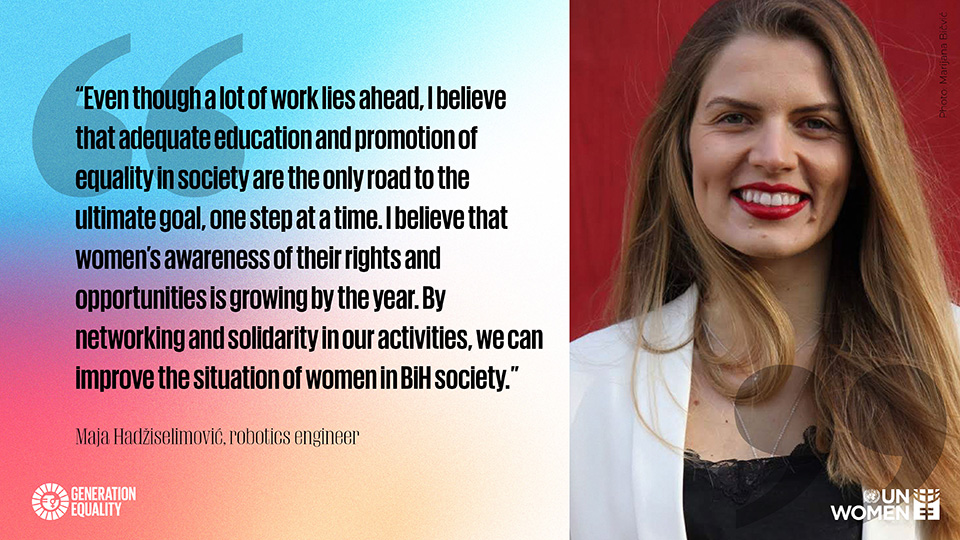
To mark International Women’s Day, UN Women organized a social media campaign in Bosnia and Herzegovina to create a discussion on women's rights throughout the month. The campaign’s aim is to celebrate change makers of all ages and genders in the area of advancing women’s rights, raise awareness on the importance of International Women’s Day and what it stands for in terms of attaining and advancing women’s rights, and to promote women’s rights through role models, both women and men, who can encourage people to take action. The campaign features 8 individuals, 6 women and 2 men, who reflected on the current state of women's rights in Bosnia and Herzegovina through short interviews. They highlight the positive changes made in the area of women's rights, and emphasize individuals, groups, and initiatives that contributed to these positive changes. The interviews in English are being published on the UN website in Bosnia and Herzegovina, while the versions in Bosnian are being published on UN Women’s Facebook page in Bosnia and Herzegovina.
UN Women Ukraine and the Ukrainian Institute, a state institution that represents Ukrainian culture internationally, presented in March 2020 the second Women in Arts Award marking International Women’s Day. Begun last year as part of HeForShe solidarity movement for gender equality, Women in Arts is an independent award to mark the emergence of a new tradition in Ukrainian arts. Read more.
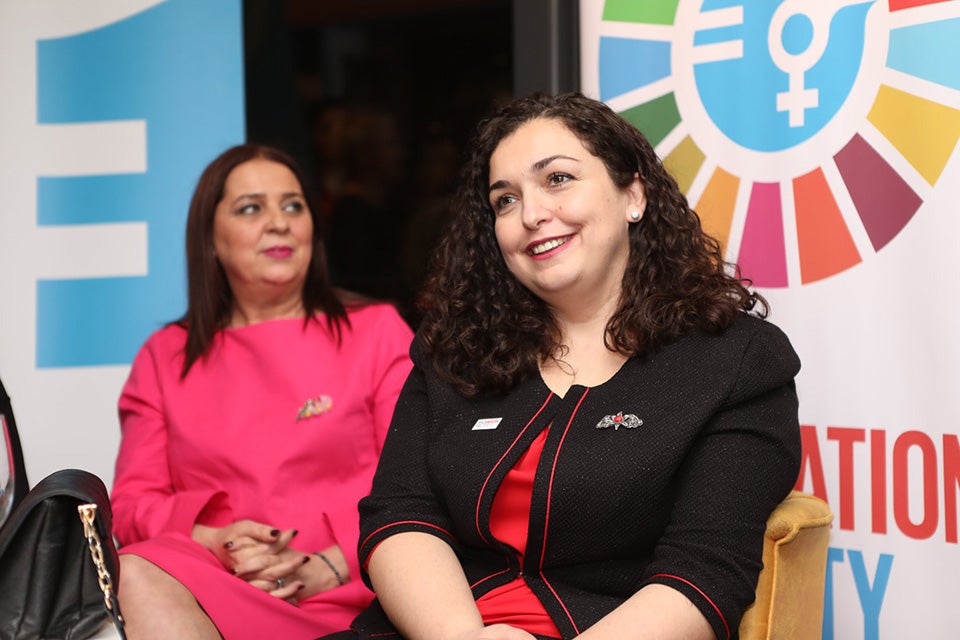
UN Women and KultPlus, the largest cultural media outlet, invited youth and representatives from civil society organizations, media, arts and institutions to have a discussion with women politicians. For the first time, Kosovo has five women ministers, a woman Assembly President and Deputy President, who all participated in the discussion and committed to work towards the full realization of women's rights within their mandates. “Our priority is to join forces and put a gender lens in all decisions we make,” said the Assembly President, Vjosa Osmani. “Our joint effort is to raise awareness of the whole society on the importance of including women in all decision-making processes,” said the Deputy President of the Assembly, Arbërie Nagavci. The Minister of Economy, Trade and Finance, Rozeta Hajdari, advocated for more women and girls in science and technology, expressing her desire “to see more women as engineers, not just as teachers and lecturers".
The Minister of Justice, Albulena Haxhiu, expressed her commitment to “strive to change the law in a way that daughters will no longer have the option to give away their share of property.” Hykmete Bajrami, Minister of Education, Science, Technology and Innovation, highlighted that “we already have more women students in the education system, now we need to ensure that they fully realize their wonderful potential.” The Minister of Public Administration, Emilja Rexhepi, emphasized the importance of the inclusion of women in different segments of society. Lastly, Vlora Dumoshi, Minister of Culture, Youth and Sports, expressed the difficulties that she experienced as a single mom of two sons, acknowledging that although her path was not easy, she was able to achieve success, a reason why she believes that “we need to support each other so that every single one of us can also achieve their dreams.”
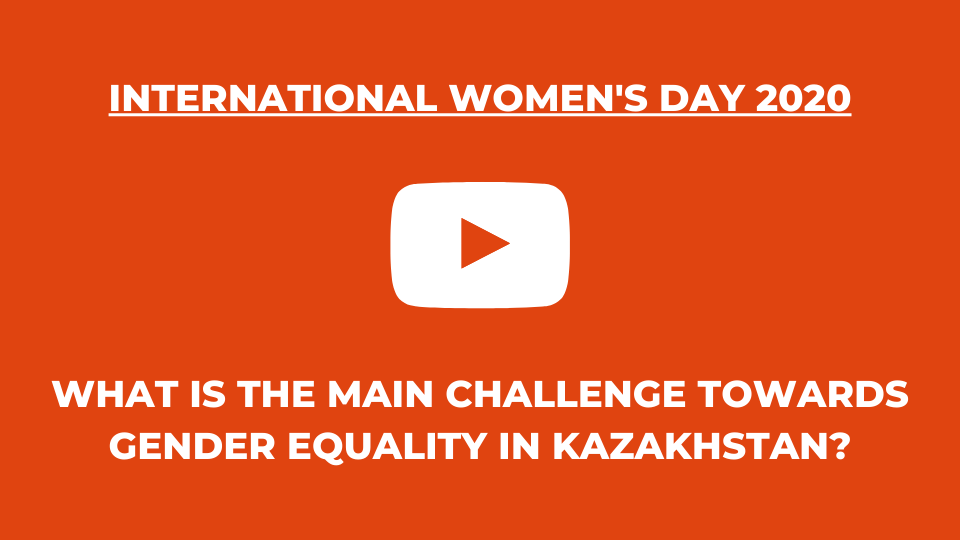
UN in Kazakhstan produced a series of advocacy videos on challenges related to gender equality in the country engaging prominent leaders delivering strong messages, including sister artists Galiya and Balkhiya Kusainov, political scientist Iskander Akylbayev, journalist Makhabbat Yesen, UNICEF Kazakhstan Representative Arthur Van Diesen, STEM Sequence Project Leader Dilnaz Kamalova, neurosurgeon Mynzhylky Berdikhodzhaev. UN Women in Kazakhstan supported the production of the video. Watch here.
7 March
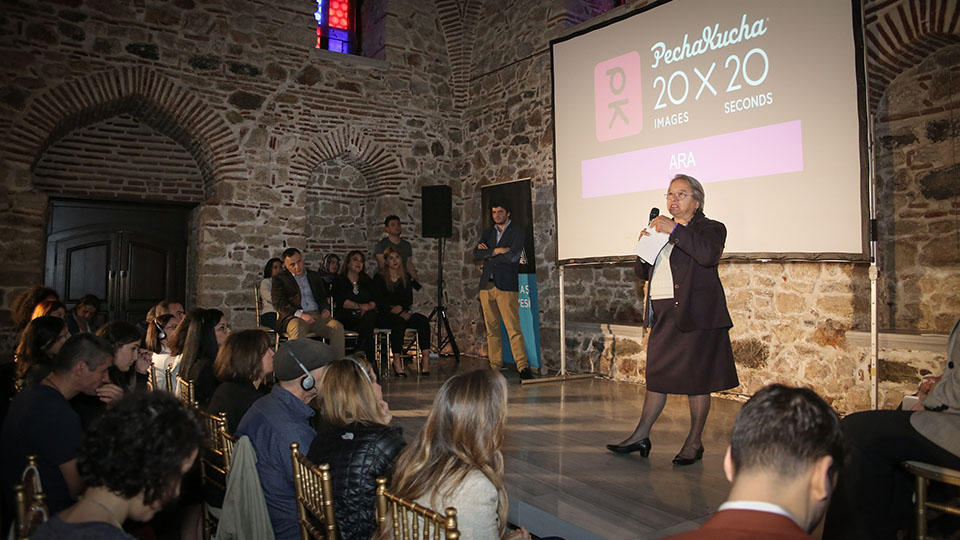
10 women and 1 man who have challenged gender roles in their fields and paved the way to achieve gender equality shared their journeys with 20 photos and in 20 seconds – a format named PechaKucha invented in Japan. Organized jointly by UN Women and Besiktas Municipality at the Kethuda Hammam in Istanbul on 7 March, “Generation Equality Starts with You” event was attended by a large crowd. Read more.

To mark International Women’s Day, UN Women in Albania organized local screenings of the Albanian movie “Open Door,” which showcases the impact of patriarchal social norms and traditions on the lives of women and girls. Hundreds of people participated in the screenings and in follow-up discussions with the movie cast in the towns of Prrenjas, Elbasan and Puke a week prior to Women’s Day. Read more.
6 March
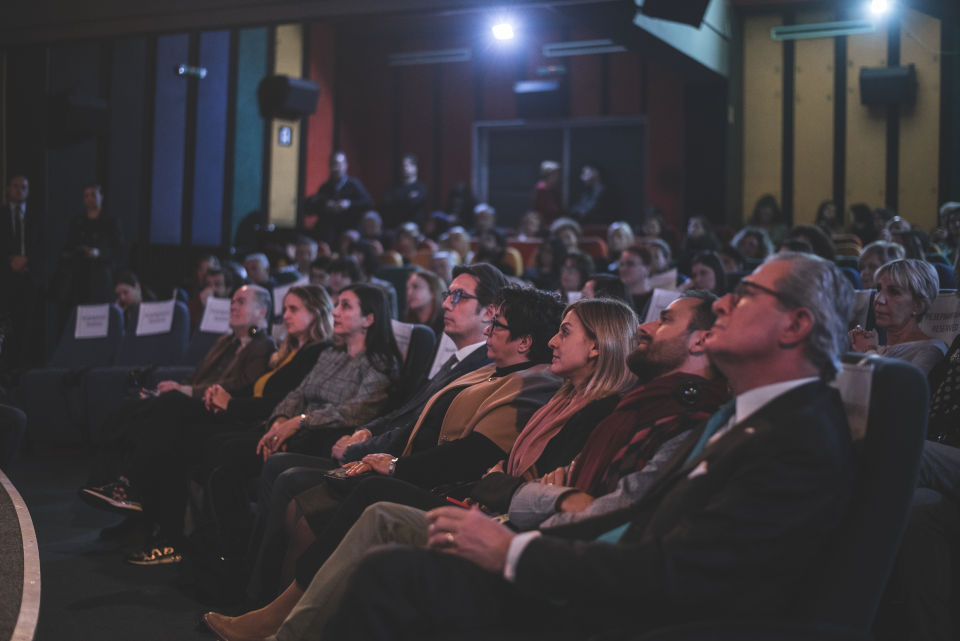
Around 200 guests, including the President of the Republic of North Macedonia, the UN Resident Coordinator, high-level government officials, diplomats, civil society organizations, activists and experts, have gathered on 6 March in Skopje for the opening night of the 11th Edition of the Women’s Rights Nights, a cultural event to mark International Women’s Day. Their message was loud and clear: End gender inequalities now! Read more.
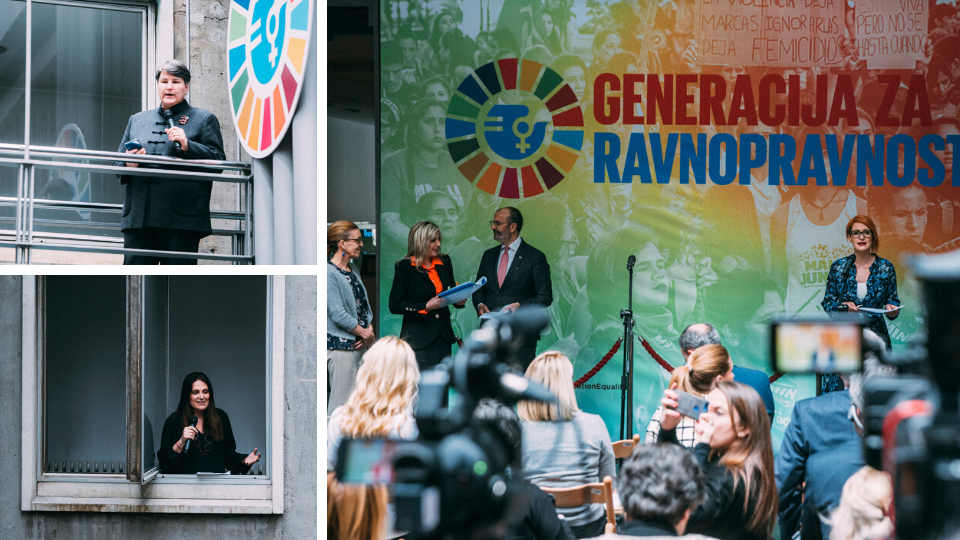
More than 120 women's rights advocates and key stakeholders gathered at the National Library of Serbia to launch "Generation Equality" campaign. The event kicked off with welcoming remarks of the Minister of EU Integration of Serbia, Jadranka Joskimovic, Head of the UN Country Team in Serbia Francoise Jacob and Head of EU Delegation to Serbia Sem Fabrizi.
12 women's rights activists from different age groups and diverse backgrounds presented achievements in the critical areas of Beijing Declaration and Platform for Action over the last 25 years. Around the library's main hall, speakers explained the progress in the critical area they work on and called for action, in a dynamic format in maximum 3 minutes. Speakers, who are supporters of the Generation Equality campaign, have pledged to intensify their work towards full gender equality.
UN Women in Serbia also started a Facebook campaign featuring these activists’ inspiring quotes with great success.
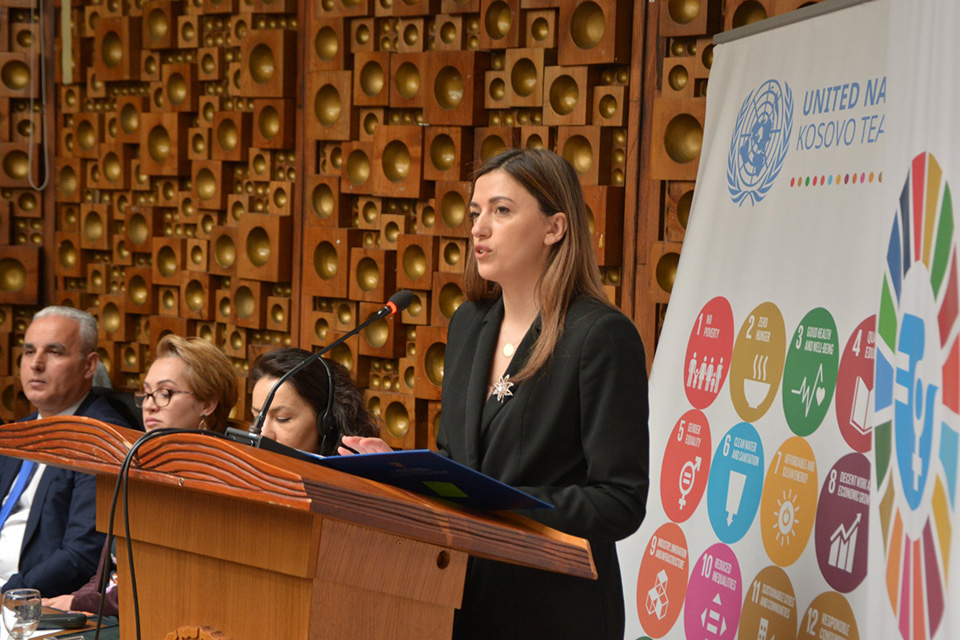
To mark International Women's Day in Kosovo, on 6 March, UN Women organized the conference “Domestic and Gender-Based Violence: Breaking the Silence”, in Pristina, in cooperation with the French Embassy. The aim of the conference was to highlight the importance of breaking the silence surrounding domestic violence and to encourage survivors to speak up and report violence.
The Minister of Justice Albulena Haxhiu was also part of the conference and she pledged to work towards elimination of domestic violence during her mandate. She said: “We must work together to change this patriarchal mentality which is impeding the development of our society. Ms. Haxhiu also stated that for the first time a budget line has been allocated for shelters of domestic and gender-based violence survivors. “Despite the positive changes, we are still not seeing girls in places where we see boys. The world continues to be male dominated, but the generation of equality can make a difference.,” said United Nations Development Coordinator Ulrika Richardson. The conference also marked the launch of the multi-generational campaign Generation Equality.
“The next decade demands a new level of partnership to advance gender equality and empower women and girls,” our Regional Director @elyassir_alia urged representatives of governments from across the region to join #GenerationEquality. pic.twitter.com/1KtviNgiVx
— UN Women Europe & CIS (@unwomeneca) March 6, 2020
“This is the time to change."
— UN Women Europe & CIS (@unwomeneca) March 6, 2020
Hosts of the #GenerationEquality Forums, @FranceenTurquie and @EmbaMexTur called for accelerated action on gender equality in 2020. pic.twitter.com/Z98sMkvdGD
For International Women’s Day, UN Women celebrated its partnership with the EU and hundreds of women’s rights organizations in the Western Balkans and Turkey to collaborate and join strengths to eliminate discrimination and violence against women and girls in the region. UN Women produced this animation video on “Zero tolerance for violence against women” and translated into 4 local languages of the region as part of the soft-launch of the second phase of the EU-funded regional programme “Ending violence and discrimination against women in the Western Balkans and Turkey: Implementing Norms, Changing Minds”.
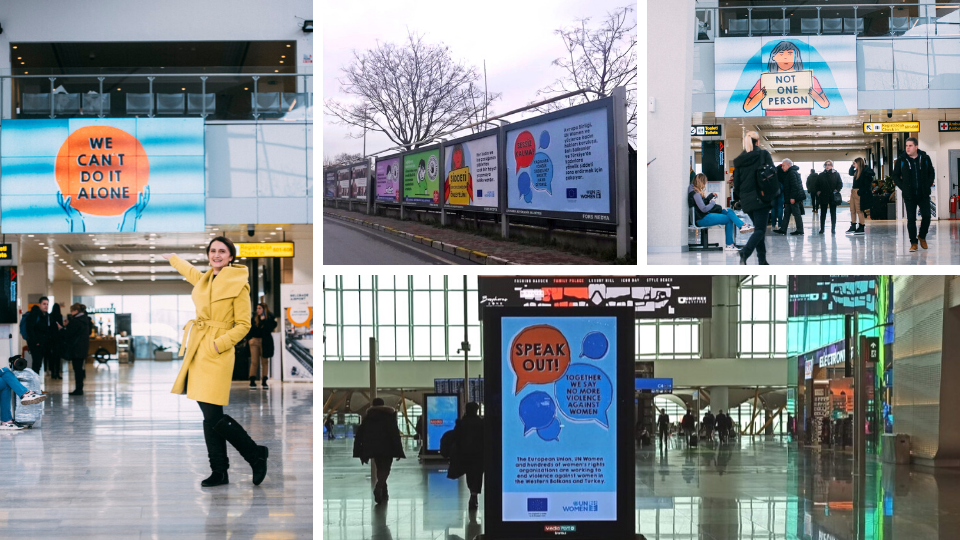
The video and corresponding posters/billboards have been disseminated on airports, public transportation, cinemas, billboards and TV stations across the region to outreach to wide audiences with strong messages on ending violence against women and girls, and how the EU, UN Women, and civil society organisations collaborate towards this goal.
4 March
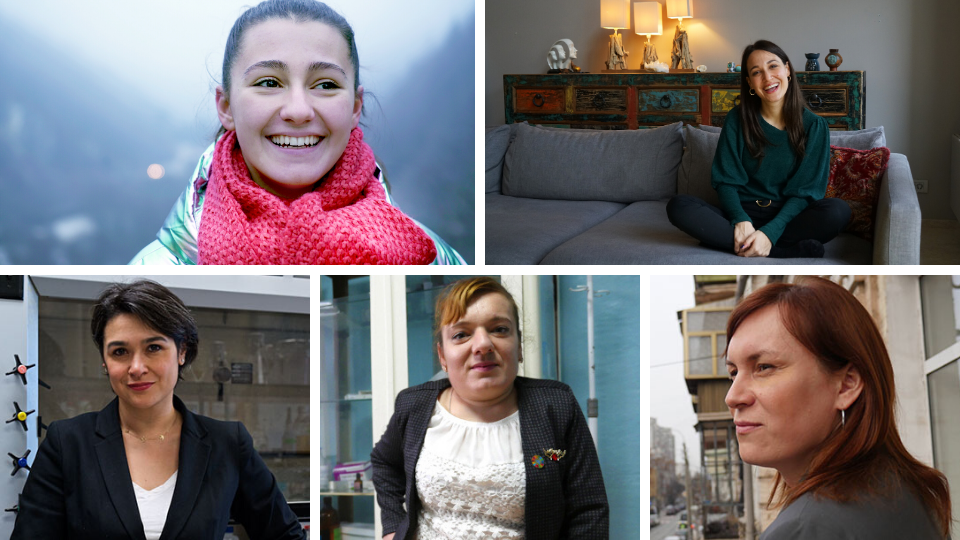
In the framework of the Generation Equality campaign, UN Women Regional Office for Europe and Central Asia is showcasing the inspirational stories of 25 women from the Europe and Central Asia region who are role-models, political leaders, opinion makers, activists, or women from different generations who have removed all barriers and overcome obstacles to realize their full potential. The series “25 Women” kicked off on International Women’s Day with the inspiring stories of Gupse Özay, a woman comedian fighting stereotypes in Turkish films; Mrika Nikҫi, world’s youngest woman to climb the seven highest peaks in seven continents; Anastasiia Yeva Domani, a transgender woman in Ukraine fighting for her rights; Elena Crasmari, a Moldovan woman with disabilities who fought for her rights and won an election; Veronica Fonova, a feminist activist who led Kazakhstan’s first feminist rally and Alina Andronache, a vlogger for gender equality in Moldova. Through these women’s stories and voices, the moment will be seized to reimagine economies, societies, and political systems so that they uphold human rights and achieve gender equality, leaving no one behind.
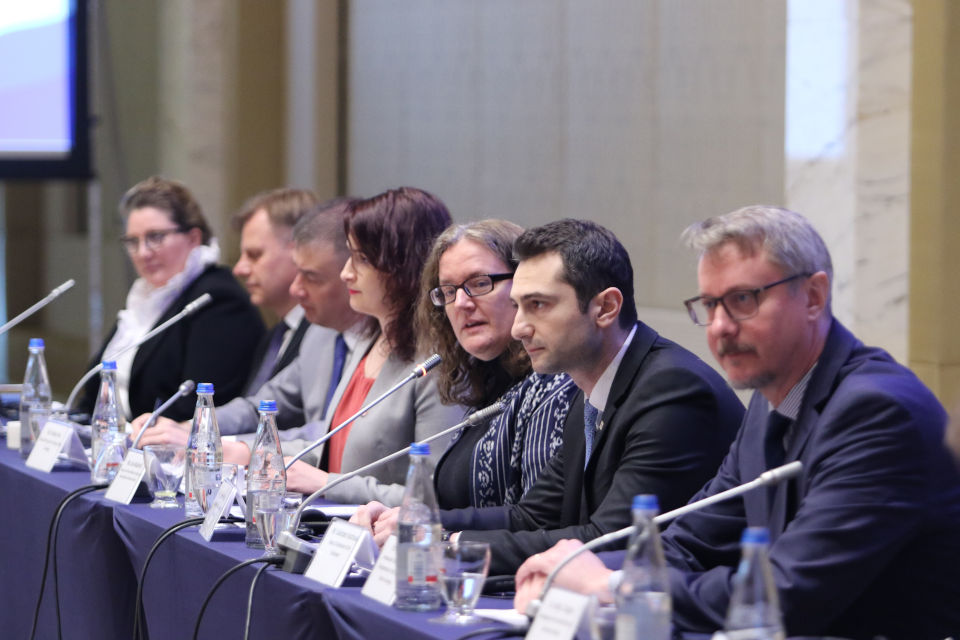
On 4 March, a High-Level Meeting on Preventing Violence against Women in Politics and Elections in Georgia brought together important stakeholders to raise awareness about violence against women in politics and elections as one of the forms of gender-based violence. The meeting aimed to encourage the public in general and political parties in particular to take measures for violence prevention and elimination.
“Violence against women is an underlying factor for women’s low political participation,” stressed UN Resident Coordinator Sabine Machl. The meeting was organized by the UN Gender Theme Group with the support of the Government of Sweden and the participation of representatives from the legislative and executive branches, the Public Defender’s Office, the diplomatic corps, political parties and civil society. Read more.
[1] All references to Kosovo on this website shall be understood to be in full compliance with UN Security Council Resolution 1244 (1999).